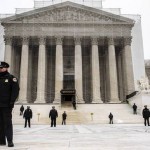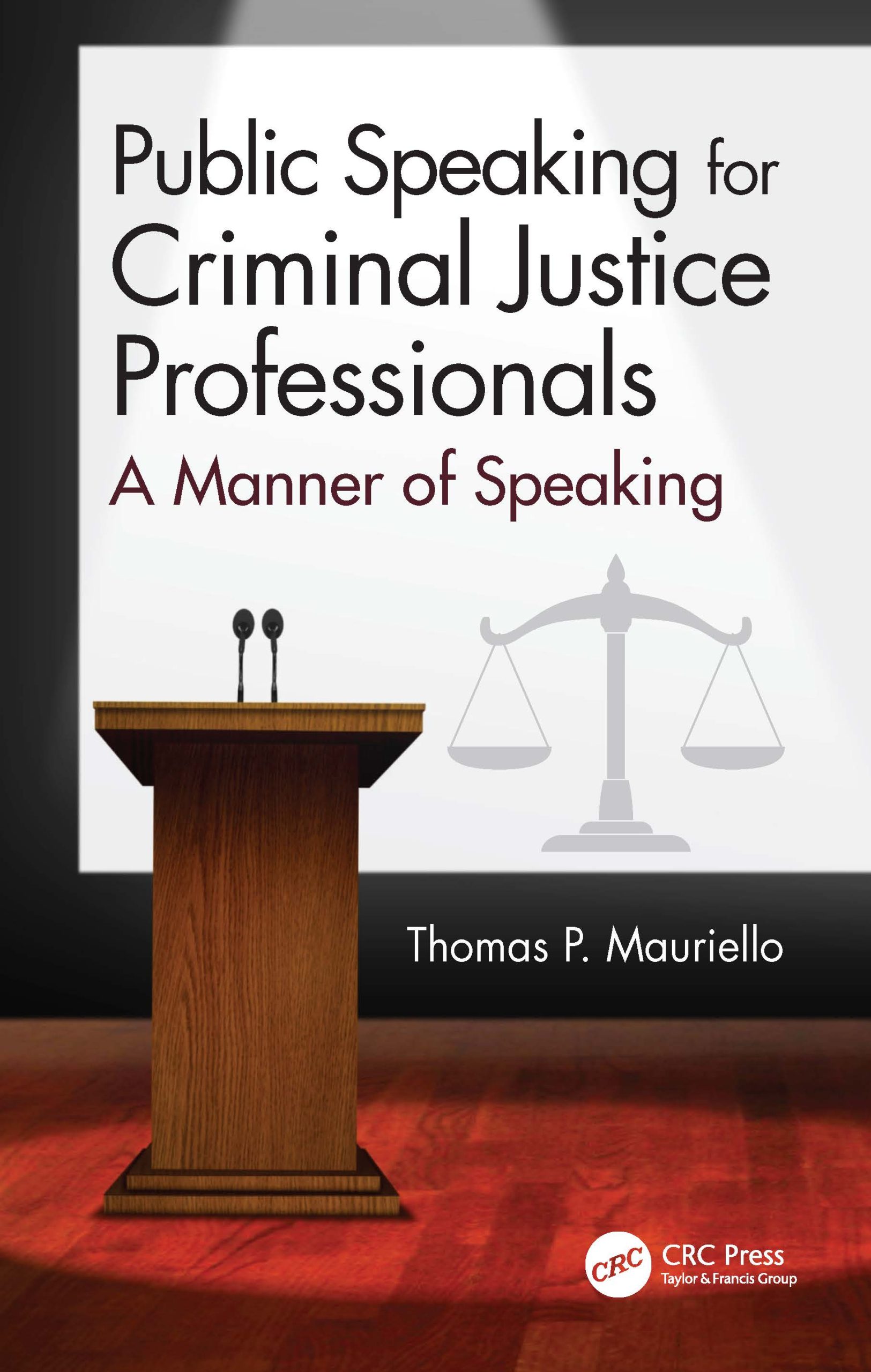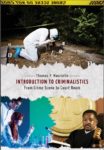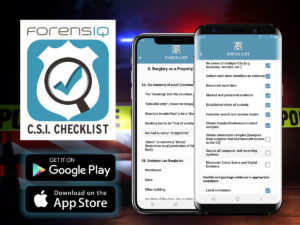Better Science Could Mean a New Day in Court
Recently, Texas lawmakers approved Senate Bill 344 which, according to this article, is the first law in America to allow defendants a new trial in light of relevant scientific evidence that was not accessible at the time of the first trial because the science had yet to be developed. For Robert Avila, the passage of this law might save his life. In his original trial, where he stood accused of killing his girlfriend’s 19 month old child in a fit of jealousy while babysitting her two children, Avila denied involvement in the child’s death despite the evidence stacked against him – including a signed confession and evidence that demonstrated that the four-year-old present could not have inflicted injuries serious enough to kill the baby. However, 12 years later, new biomechanical evidence reveals that there is a chance that the toddler could have accidentally caused the child fatal injuries. At the time Avila went to trial, forensic pathologists did not have the tools to consider this possibility. With the passage of this bill, Avila might have another day in court, and another chance to prove his innocence.
Source: The Texas Tribune
Citation:
Grissom, B. The Texas Tribune. New Law Gives New Hope to Death Row Inmate. Retrieved September 12, 2013, from http://www.texastribune.org/2013/09/08/new-law-gives-new-hope-death-row-inmate/.
[Abstract written by Emily McGowan, ForensIQ Intern]
The ForensicWeek.com Webcast Show airing Episode #29 – “Cold Cases Revisited”
The ForensicWeek.com Webcast Show is airing Episode #29 – “Cold Cases Revisited,” Thursday evening, June 27, 2013 at 7:00 PM (EST). Join us as we examine what determines that an old unsolved case should be revisited and declared a “Cold Case” for additional investigation. What types of cases are considered for reinvestigation? What are the odds that a “cold case” will be solved when revisited; and who investigates these unsolved cases. So join host, Tom Mauriello and his special guest, Joe Giacalone, retired NYPD Detective Sargent and former Commanding Officer of the Bronx Cold Case Homicide Squad. Watch the show LIVE or view it at your convenience. Just GO TO www.forensicweek.com
Free webinars by Bode Technology
Bode Technology provides online webinars which include overviews and demonstrations designed to help all individuals in the justice system better understand the technology of identification using DNA testing. All offered webinars are FREE and each is followed by a Q & A session. The webinars cover a variety of topics ranging from cold case investigations to expert witness testimony to advanced DNA techniques for attorneys.
For more information and how to register click here.
Source: forensicmag.com and Bode Technology
Bite marks derided as poor forensic science
Previously long accepted as criminal evidence, bite marks are now facing more doubts regarding reliability. Later this month, a New York judge’s ruling could end the practice indefinitely. Since 2000, at least two dozen men convicted or charged with murder or rape based on bite marks on a victim’s flesh have been exonerated thanks to DNA testing. According to the director of strategic litigation at the New York-based Innocence Project,Chris Fabricant argues that bite-mark evidence is “the poster child of unreliable forensic science.” However, supporters of the method argue that the problems have arisen not because of a flawed method, but because of the flawed qualifications of those testifying.
Another story can be found here.
Source: Arizona Daily Star and Forensicmagazine.com
Citations:
Behrman, A. StarNet – Arizona Daily Star . Bite marks derided as poor forensic science. Retrieved June 17, 2013, from http://azstarnet.com/news/national/bite-marks-derided-as-poor-forensic-science/article_dc64cfc8-2231-5f24-949d-e76dbed2a629.html
Myers, A. Forensic Magazine . Bites Derided as Unreliable in Court. Retrieved June 17, 2013, from http://www.forensicmag.com/news/2013/06/bites-derided-unreliable-court?et_cid=3317377&et_rid=515363537&location=top#.Ub8_-fnCaSo
Supreme Court Decides on Police Collection of DNA Upon Arrest
This past Monday, June 3, 2013, the Supreme Court in a 5-4 decision upheld a state law that allows investigators to take genetic information from arrestees, a practice followed by the federal government and 28 states. Police generally compare suspects’ DNA to records from other cases in hopes of developing leads
Justice Anthony Kennedy, writing for the majority, said “DNA collection was a legitimate booking procedure akin to fingerprinting and photographing for the purpose of “identifying” suspects.”
But in a dissent that aligned some of the court’s liberal members with conservative Justice Antonin Scalia, the minority said the court’s decision overextends police powers. Scalia quoted Maryland Gov. Martin O’Malley and Attorney General Douglas F. Gansler describing DNA collection as a crime-fighting tool.
“Make no mistake about it: As an entirely predictable consequence of today’s decision, your DNA can be taken and entered into a national DNA database if you are ever arrested, rightly or wrongly, and for whatever reason,” Scalia wrote. He took the rare step of reading the statement from the bench. “In fact you could argue the taking of DNA is less intrusive than fingerprints — at least you don’t have ink on your fingers,” he said.
Law enforcement is already authorized to handcuff suspects, pat them down, draw blood, and strip-search someone before taking them to a jail cell, he said. “Clearly, they can touch the inside of your cheek and take a DNA swab,” Gansler said.
Stephen B. Mercer, chief attorney within the Maryland Public Defender’s Forensics Division, said he believes the decision could set the stage for a universal DNA database made up of all citizens.
“DNA testing has little to do with identification and everything to do with solving unresolved crimes,” said Steven R. Shapiro, the ACLU’s national legal director. “While no one disputes the importance of that interest, the Fourth Amendment has long been understood to mean that the police cannot search for evidence of a crime … without individualized suspicion. Today’s decision eliminates that crucial safeguard.”
This is an important decision that will make a positive difference in solving cases that otherwise would never be solved.
Expert Witness – The Role of a Computer Forensic Expert From Retention Through Trial
Yet another free webinar is being presented by Forensic Magazine, covering the important role for computer forensic investigators as they serve as an expert witnesses. The presentation will cover the attorney’s expectations from the case formation through the actual trial. Join the webinar to learn how to work effectively with attorneys, how to educate them as needed, and how to successfully perform your duties from the start of your investigation through the end of the trial.
Register free here and receive CPE credit.
Source: forensicmag.com
How Forensics Plays a Role in Civil Litigation
Forensic science plays a role in many scenarios, many being criminal investigations and crime scenes. However, the value of forensic science and evidence collection can be used in many other areas as well. Civil law and litigation is a branch where forensic science is also very crucial because just like a criminal case, civil cases need evidence to prove a particular case. Many ways a criminal case is analyzed for evidence, similarly a civil case can be analyzed also. For example, cases involving some type of property damage can be analyzed by looking at some form of trace evidence. Forensic science can be beneficial in many types of civil litigation cases, using many of the methods and techniques commonly used to analyze criminal cases and crime scenes.
Source: Forensic Magazine and Gateway Analytical
To read the full article, click here.
Citation: Wagurak, R. (2013). Gateway Analytical. How forensics plays a role in civil litigation. Retrieved April 11, 2013, from http://www.gatewayanalytical.com/blog/how-forensics-plays-a-role-in-civil-litigation/?goback=%2Egde_3473162_member_227338971
[Abstract by ForensIQ intern, Andrea Williams]
Seminar Brings Legal, Forensics Experts Together to Win Cases
Penn State Law is offering a day-long seminar on April 5, that will provide attendees an opportunity to learn from experts about forensic tools that can help win cases. “Forensic Science Legal Tools” is designed for prosecutors, criminal defense attorneys and civil litigators as well as members of the science and law enforcement communities who may be expert witnesses. Students who are interested in careers in law, law enforcement and/or forensics are also encouraged to attend. The seminar is free to the public but there is a fee to register for continuing education credits.
“The ‘CSI effect’ has created the perception that forensic science can solve and win cases with ease, but forensic scientists and law enforcement and legal professionals are continuing to face serious challenges on the collection and use of this evidence,” said David Kaye, a professor at Penn State Law. Kaye, who has written a comprehensive history of DNA evidence, will be one of the featured speaker and will be joined by Cedric Neumann, a member of Penn State’s Eberly College of Science Forensic program, and a renowned expert on fingerprint evidence who helped develop the digital ink library for the U.S. Secret Service.
For more information on the seminar’s agenda and location click here.
Source: forensicmag.com
Seminar Brings Legal, Forensics Experts Together to Win Cases
Penn State Law will hold a “Forensic Science Legal Tools” seminar on Friday, April 5th, 2013. The seminar is designed for prosecutors, criminal defense attorneys, civil litigators, students and members of the forensic science and law enforcement communities. The seminar is will begin at 10am and end at 5pm, is free to the public and is also available through a live webcast. Topics that will be presented include Forensic DNA for Litigation, The Nature and Admissibility of Fingerprint Evidence, DNA Databases and the Fourth Amendment and Confrontation Clause Challenges to Laboratory Reports and Testimony.
Source: Penn State News
For more information and to register for the seminar, click here.
Citation: (2013.) Penn State News. Seminar brings legal, forensics experts together to win cases. Retrieved from http://news.psu.edu/story/269830/2013/03/22/academics/seminar-brings-legal-forensics-experts-together-win-cases
[Abstract by ForensIQ intern, Andrea Williams]
Senate Panel Casts Votes on Gun Purchases
While background checks are now required for firearm sales by the nation’s 55,000 federally licensed gun dealers, they are not required for private sales between individuals, like those at gun shows or online. In Congress’ first gun votes since the Newtown, Conneticut school shooting, the Senate Judiciary Committee voted to deter gun trafficking and straw purchasing by heighten federal penalties against illegal firearms purchases. The Democratic-led panel voted 11-7 to impose penalties of up to 25 years for people who legally buy firearms but give them to someone else for use in a crime or to people legally barred from acquiring weapons. The committee was expected to vote on several other bills, including one that would require background checks for nearly all gun purchases and another that would provide around $40 million a year for schools to buy security equipment but no verdict has yet been reported. The debate made it clear that new gun restrictions face a difficult road getting through a Congress where the National Rifle Association and conservative voters have such a loud presence.
Source: Alan Fram at The Associated Press, and forensicmag.com
Citation:
Fram, A. Forensic Magazine. Senate Panel Casts Votes on Gun Purchases . Retrieved March 12, 2013, from http://www.forensicmag.com/news/senate-panel-casts-votes-gun-purchases?et_cid=3130957&et_rid=515363537&linkid=http%3a%2f%2fwww.forensicmag.com%2fnews%2fsenate-panel-casts-votes-gun-purchases
Walker proposes expanding DNA collection
Wisconsin Governor Scott Walker is seeking to expand DNA collection efforts to include anyone arrested on a felony charge and anyone convicted of a crime. Wisconsin currently collects DNA only from convicted felons and sex offenders, but Walker says that the expansion would be “tremendously powerful” for solving cold cases. Some argue that this move is a civil rights infringement that will put more stress on the state’s justice system, but supporters say it offers a sure-fire genetic identifier upon arrest, which will identify more criminals and solve more cases. Among the proposal to expand DNA collections, Walker wants to provide grants for GPS monitoring of high-risk offenders, spending $1 million to hire five new full-time employees at the DoJ task force, and to replace surcharge money with $4 million from the state’s general fund to assist victims of sexual assaults.
Source: forensicmag.com
Citation:
Bauer, S. SFGate. Walker proposes expanding DNA collection . Retrieved February 13, 2013, from http://www.sfgate.com/news/article/Walker-proposes-expanding-DNA-collection-4271689.php
U.S. Supreme Court to Hear Case on Collecting DNA from Arrested People
The United States Supreme Court will hear the battle over collecting DNA samples from arrested but not convicted individuals this month and rule to either allow or prohibit the collection nationwide. A little over half of the states currently collect a DNA sample from arrested but not yet convicted offenders along with standard fingerprints and basic identification procedures after arrest. Proponents for DNA collection of arrested offenders argue that identifying offenders as soon as possible will save innocent lives and prevent future crimes from occurring. Opponents argue that DNA collection of individuals who are not convicted is unconstitutional and a violation of the fourth amendment’s protection from unreasonable searches and seizures. The Supreme Court will hear the 2009 Maryland v. King case in determining the constitutionality of DNA collection of arrested but not convicted offenders.
Date of Article: February 2, 2013
Source: Forensic Magazine
Citation:
Savage, D. (2013, February 2). Supreme Court to hear fight over taking DNA from arrested people. Los Angeles Times. Retrieved from http://www.latimes.com/news/nationworld/nation/la-na-court-dna-20130203,0,4970458.story

Supreme Court to Hear Fight over Taking DNA from Those Arrested
On a cold February night three years ago, police in suburban Arlington, Va., received a frantic call. A young woman said her roommate had been abducted at gunpoint by a short, clean-shaven man who sped away in a silver SUV.
At dawn, a motorist spotted the victim in a snowy field near a highway, raped and strangled, but alive. An alert officer, hearing the lookout report, recalled that he’d jotted down the license tag of a silver Dodge Durango whose driver lurked near bars at midnight, leading to the quick arrest of a short, clean-shaven Marine named Jorge Torrez.
Ten years ago, Virginia became the first state to require a mouth swab for DNA, upon arrest for a serious crime. This month, the U.S. Supreme Court will hear a privacy rights challenge to this common police practice. DNA samples are currently being taken nationwide from those convicted of serious crimes, while only the federal government and 28 states take samples from those arrested but not yet convicted. Victim’s rights groups, the Obama administration, and the top state attorneys from California and 48 other states have urged the court to rule in favor of routine DNA testing, saying that the mouth swab is at most, a minor invasion of privacy that has an extraordinary potential for solving heinous crimes.
Sourced from forensicmag.com
Citation:
Savage, D. Los Angeles Times . Fight over taking DNA samples after arrests goes to Supreme Court. Retrieved February 5, 2013, from http://www.latimes.com/news/nationworld/nation/la-na-court-dna-20130203,0,4970458.story
Free training on Essentials of Forensic Science for Legal Professionals
The West Virginia University Forensic Science Initiative, in collaboration with the National Institute of Justice, is holding the 2013 Spring Essentials of Forensic Science for Legal Professionals program. This training is FREE to practicing prosecuting attorneys who work for a state or county agency and will take place March 19-20, in Tulsa, OK.
The two day program will provide the basic precepts of forensic science training and supply the tools to effectively apply this information for trial. Attendees will also be given information on evaluating the scientific rigor of expert testimony and the reliability of forensic evidence. Members of academia, scientists, and attorneys will instruct and apply practical examples to the content presented. This is an excellent opportunity for the legal community to broaden their knowledge of important forensic science topics while also receiving continuing legal education.
Topics include:
- The Forensic Analysis of Evidence: How Scientific is it?
- Crime Scene Response, Evidence Collection, and Preservation
- Quality Assurance for Forensic Laboratories
- Sufficiency of Forensic Science Laboratory Reports
- Basic Statistical Concepts in Forensics
- Frye, Daubert, and Their Application to Current Issues in Forensic Science
Registration will open January 28, 2013 at 12:00 PM (EST).
Source: forensicmag.com
AIEWE 2013 Expert Witness Bootcamp
The American Institute for Expert Witness Education’s (AIEWE) Expert Witness Bootcamp is hosting an intensive three-day clinic designed to develop and enhance the testifying and communication skills of professionals who serve as expert courtroom witnesses in a variety of industries including accounting, financial and valuation, marital dissolution, fraud investigation, medical, high technology, fire and others.
Attendees will work on simulated case studies that incorporate their actual work product and engagements. Members of the AIEWE faculty of seasoned experts, witness preparation consultants, strategic communications coaches, and trial attorneys who have an average of more than 25 years of experience will coach participants in a variety of real world scenarios include jury and bench trials in federal and state courts, matrimonial courts, and in arbitration.
The 2013 training schedule coming to three locations:
- March 21-23 Chicago, IL
- September 19-21 Atlanta, GA
- December 12-14 Las Vegas, NV
- Customized in-house training also available. Please inquire.
Price for attending the Bootcamp is $1,755 for members and $1,950 for non-members. Early registration discounts are available. In addition, the AIEWE is offering a limited-time discount of $250 off any Bootcamp if registered and paid by February 28, 2013. To register, call Member Services at (800) 677-2009. Dates and locations are subject to change.
Date of Article: January 28th, 2013
Citation:
Forensic Magazine. AIEWE 2013 Expert Witness Bootcamp Schedule . Retrieved January 28, 2013, from http://www.forensicmag.com/news/aiewe-2013-expert-witness-bootcamp-schedule?et_cid=3061739&et_rid=515363537&linkid=http%3a%2f%2fwww.forensicmag.com%2fnews%2faiewe-2013-expert-witness-bootcamp-schedule






